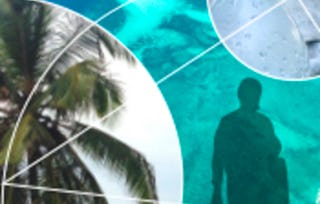Tourism is one of the most motivating activities for any person. It fills us with enthusiasm, with the desire to get to know new places and establish new bonds. The trip begins long before we start it: when we dream about it, when we imagine ourselves visiting places, tasting flavors, getting to know new cultures. In it we enjoy, investigate, discover and above all, we are amazed with experiences to be revealed. “Once a year go somewhere you've never been before” (Dalai Lama), is one of the phrases that surely awakens in us the desire to take a trip soon to unveil new directions.

Gain next-level skills with Coursera Plus for $199 (regularly $399). Save now.

Introduction to Tourism and Hospitality

Instructor: Vanesa Cerdán
6,416 already enrolled
Included with
(61 reviews)
Recommended experience
What you'll learn
You will recognize the importance of the link between the tourist and the natural, socioeconomic and cultural environment.
You will learn the technical language of the sector.
You will understand the properties of transportation, hospitality and gastronomic services companies as part of the tourism in digital environments.
Skills you'll gain
Details to know

Add to your LinkedIn profile
13 assignments
See how employees at top companies are mastering in-demand skills

There are 4 modules in this course
In the first module we will approach the notions of tourism and hospitality. Types and classification. The tourist and his motivations: Why do we like to travel? The history of tourism and hospitality: origin and evolution.
What's included
2 videos5 readings3 assignments3 discussion prompts
This week we will develop tourism supply and demand, tourism service and product, seasonality, travel flows, tourist behavior and profile. We will also look at the economic contribution of tourism to local development, and the implications of the hotel sector in the economy and the challenges it presents.
What's included
3 videos4 readings3 assignments3 discussion prompts
In this module we will address the new tourism habits and consumption, the emerging tourism destinations. We will also analyze the characteristics of the new forms of tourism and digital transformation as a differential value within the tourism sector.
What's included
3 videos4 readings3 assignments3 discussion prompts
In this last module we will look at climate as a travel preference factor. In turn, we will delve into the negative impacts of tourism and the environment, and the recommendations of the United Nations to the tourism sector. On the other hand, we will review the requirements necessary to practice sustainable tourism and the importance of tourism in the ecological footprint.
What's included
3 videos5 readings4 assignments3 discussion prompts
Instructor

Offered by
Explore more from Business Strategy
 Status: Preview
Status: Preview Status: Free Trial
Status: Free Trial Status: Preview
Status: PreviewUniversity of Copenhagen
 Status: Preview
Status: PreviewUniversity of North Texas
Why people choose Coursera for their career




Learner reviews
61 reviews
- 5 stars
65.57%
- 4 stars
19.67%
- 3 stars
6.55%
- 2 stars
3.27%
- 1 star
4.91%
Showing 3 of 61
Reviewed on Feb 28, 2025
Some questions appeared in Spanish, and sometimes it was a bit rough to grasp important points in the texts, but otherwise very interesting things covered! Had a fun time :)
Reviewed on Apr 17, 2025
I had an amazing class from Universidad de Palermo, great learning for a greater career Development . Thank You
Reviewed on Oct 18, 2024
This introduction course provides a typical understanding of tourism industry for the beginners. Well planned and designed.

Open new doors with Coursera Plus
Unlimited access to 10,000+ world-class courses, hands-on projects, and job-ready certificate programs - all included in your subscription
Advance your career with an online degree
Earn a degree from world-class universities - 100% online
Join over 3,400 global companies that choose Coursera for Business
Upskill your employees to excel in the digital economy
Frequently asked questions
To access the course materials, assignments and to earn a Certificate, you will need to purchase the Certificate experience when you enroll in a course. You can try a Free Trial instead, or apply for Financial Aid. The course may offer 'Full Course, No Certificate' instead. This option lets you see all course materials, submit required assessments, and get a final grade. This also means that you will not be able to purchase a Certificate experience.
When you purchase a Certificate you get access to all course materials, including graded assignments. Upon completing the course, your electronic Certificate will be added to your Accomplishments page - from there, you can print your Certificate or add it to your LinkedIn profile.
Yes. In select learning programs, you can apply for financial aid or a scholarship if you can’t afford the enrollment fee. If fin aid or scholarship is available for your learning program selection, you’ll find a link to apply on the description page.
More questions
Financial aid available,

